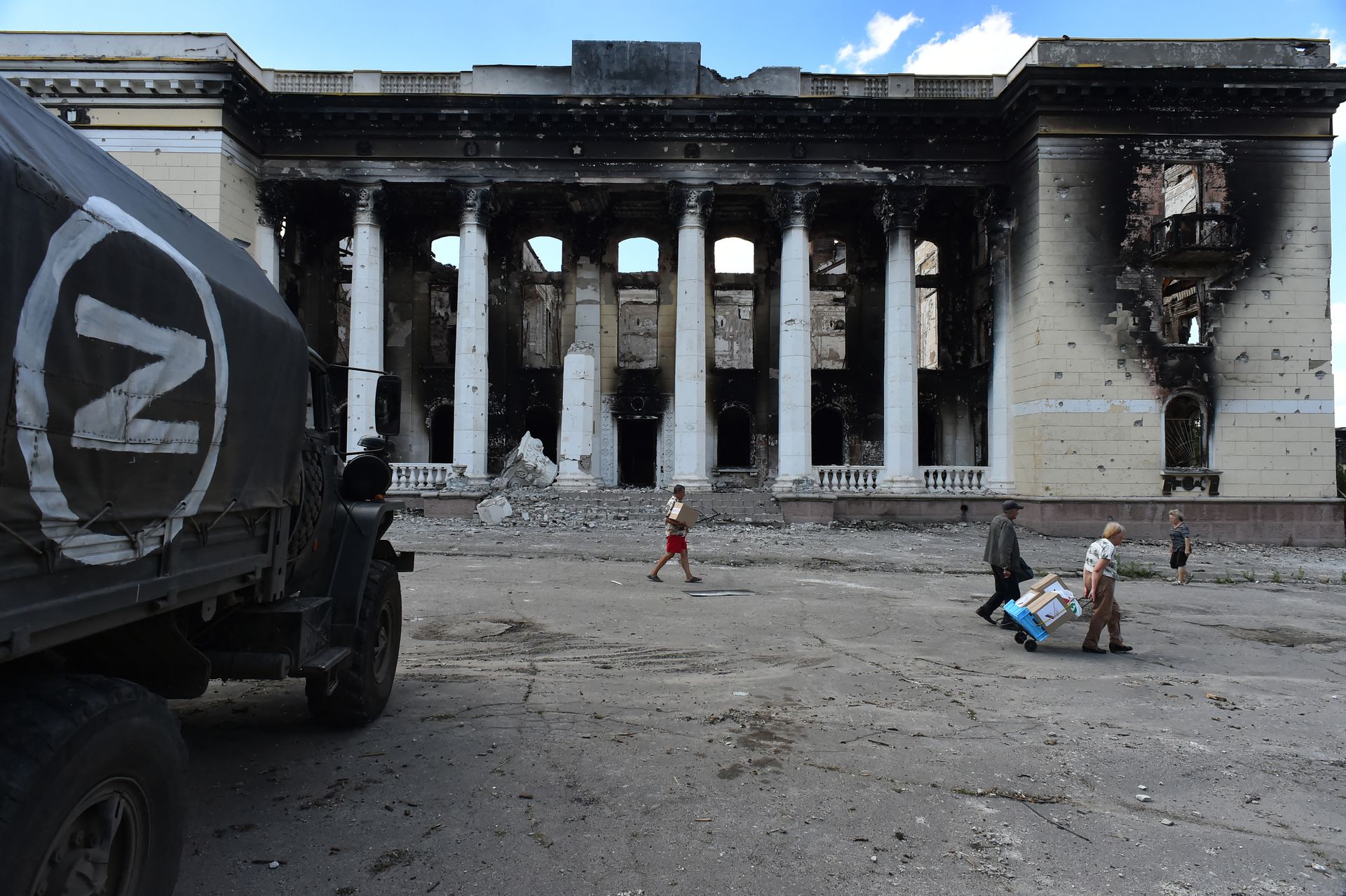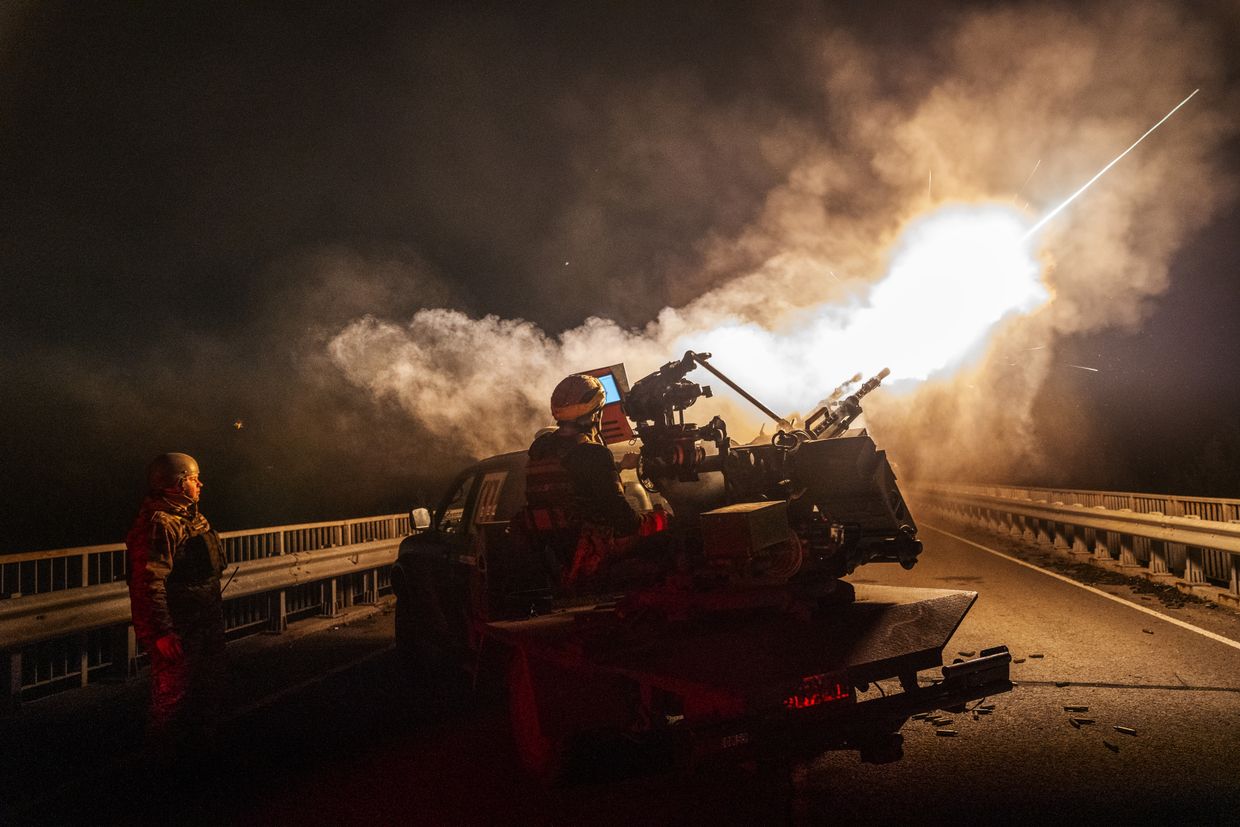Which world leaders are at Moscow’s Victory Day parade? The Kremlin published a guest list ahead of May 9

Troops march toward Red Square to attend a rehearsal for the Victory Day military parade in Moscow, Russia, on May 3, 2025. (Sefa Karacan / Anadolu via Getty Images)
Russia’s annual Victory Day parade is taking place in Moscow on May 9, in a week dramatically marked by a series of Ukrainian drone strikes on the city, and a dubious unilateral ceasefire announced by the Kremlin.
Russia's Victory Day celebrations, which mark the Soviet Union's role in defeating Nazi Germany in World War II, are one of the country's biggest public events of the year.
The annual event is a key part of Russian President Vladimir Putin's propaganda efforts to justify aggression against what the Kremlin falsely describes as "Nazis" in Ukraine.
The parade takes place after Ukraine reportedly attacked Moscow with drones for three days in a row from May 4-6, repeatedly forcing the closure of several airports in the region.
In an effort to provide some semblance of security to the event, Russia last month unilaterally announced a "humanitarian" truce from May 8 until midnight on May 11.
Under no obligation to sign up for a ceasefire it wasn't consulted on, Ukraine has not agreed to adhere to it, with Ukrainian President Volodymyr Zelensky dismissing it as a "theatrical performance."
Zelensky said Ukraine cannot guarantee the safety of foreign officials planning to attend Moscow on May 9, warning that any incidents on Russian territory fall solely under the Kremlin’s control.
Who's attending Moscow’s parade?
At least 29 world leaders were expected to attend the event, Russian state-controlled media reported on May 6.
"We have invited many foreign guests. And we expect 29 leaders of the countries we have invited to be present at the Victory Parade," Russian presidential aide Yury Ushakov told reporters.
Last year, only nine foreign leaders joined Russian President Vladimir Putin at the parade. Ukraine and most European nations mark May 8 as Victory in Europe Day.
The most high-profile guest in attendance this year will be Chinese President Xi Jinping who arrived in Moscow on May 8 to "sign a number of bilateral inter-governmental and inter-departmental documents" to strengthen Chinese-Russian relations, according to the Kremlin.

It is Xi’s second trip to Russia, after he met with Putin in Moscow in 2023 during his first foreign visit since his re-election.
China, which portrays itself as a neutral party in the war, has become the Kremlin's largest supplier of dual-use goods essential for weapons manufacturing.
Tensions between Ukraine and China have risen in recent weeks after Zelensky on April 9 said that 155 Chinese citizens were fighting for Russia on the territory of Ukraine.
A day prior, Kyiv captured the first two Chinese nationals in Donetsk Oblast. China has denied any role in Russia's full-scale invasion.
Xi was originally scheduled to fly to Russia on May 7 — it's now known if Ukraine's drone strikes delayed his arrival.

President of Brazil, Luiz Inácio Lula da Silva is also in Moscow in show of support to Putin.
According to Brazilian media, Lula will hold a bilateral meeting with Putin during which he hopes to position himself as a mediator in negotiations between Russia and Ukraine.
In 2024, Lula jointly developed a Ukraine peace plan with China that was dismissed as "destructive" by Kyiv.
European officials absent on Red Square
Europe is sparsely represented at the parade — Prime Minister of Slovakia Robert Fico represents the only EU member state, while Serbian President Aleksandar Vucic is also attending.
All other EU leaders are boycotting the parade once again. The U.S. also doesn’t plan to send representatives, despite U.S. President Donald Trump’s sharp turn of American foreign policy towards renewing diplomatic contacts with Russia that were severed after its 2022 full-scale invasion of Ukraine.

According to Russian state media, the other world leaders in attendance are those from Armenia, Azerbaijan, Belarus, Bosnia and Herzegovina, Burkina Faso, Congo, Cuba, Egypt, Equatorial Guinea, Ethiopia, Guinea Bissau, Kazakhstan, Kyrgyzstan, Laos, Mongolia, Myanmar, Palestine, Tajikistan, Turkmenistan, Uzbekistan, Venezuela, Vietnam, and Zimbabwe.
Representatives from North Korea and Russian-controlled Abkhazia and South Ossetia, as well as defense ministers from 31 countries, will also be present.
A number of countries are also contributing troops to the parade. Military personnel from 13 countries — Azerbaijan, Belarus, China, Egypt, Laos, Kazakhstan, Kyrgyzstan, Mongolia, Myanmar, Tajikistan, Turkmenistan, Uzbekistan, and Vietnam — are expected to march through Moscow.
Other security measures
As well as the unilateral truce, Russia on May 7 confirmed that mobile internet restrictions will be enforced in Moscow and several Russian regions while foreign officials visit the country.
Kremlin spokesperson Dmitry Peskov claimed the measures, which may last through May 10, are necessary due to "dangerous neighbors."












